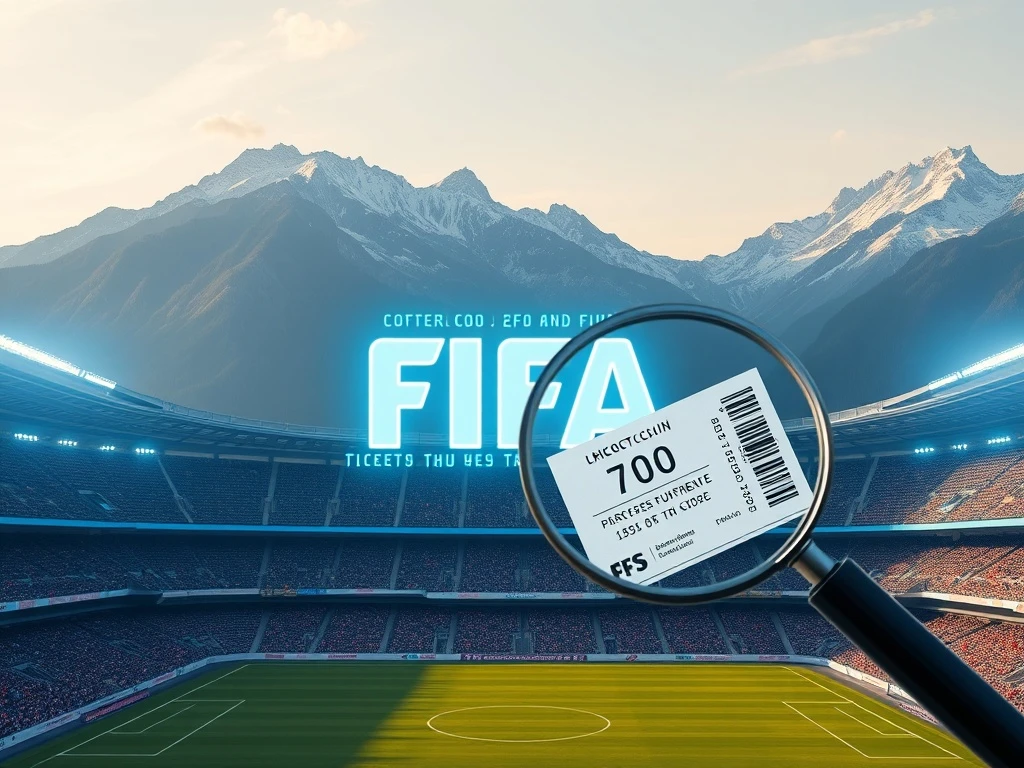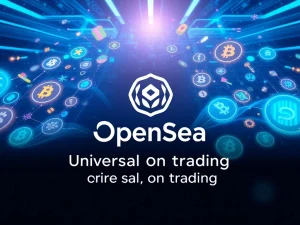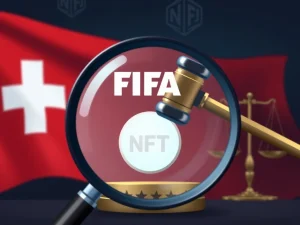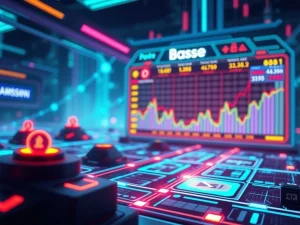FIFA Blockchain Tickets Face Crucial Scrutiny from Swiss Regulator

FIFA, the global soccer organizing body, has boldly embraced Web3 technology. They introduced blockchain-based ‘Right to Buy’ (RTB) tokens. However, these innovative digital assets now face significant scrutiny. Switzerland’s gambling watchdog is currently reviewing these **FIFA blockchain tickets**. This review assesses their compliance with national gambling regulations. It marks a pivotal moment for **Web3 sports adoption** and the integration of digital assets in major events.
Swiss Gambling Regulator Reviews FIFA’s Digital Tokens
Switzerland’s gambling watchdog, Gespa, is closely examining FIFA’s ‘Right to Buy’ NFTs. These tokens grant holders conditional access to purchase tickets. The regulator is determining if these digital assets align with gambling laws. No wrongdoing has been alleged against FIFA. Instead, Gespa is gathering facts to understand the nature of these tokens. Manuel Richard, Gespa’s director, confirmed this assessment. The outcome will set a precedent for future blockchain applications in sports.
Specifically, Gespa is assessing two key aspects. First, they want to know if the tokens are gambling-like. Second, they are checking if they represent conditional purchase rights. This distinction is crucial. It impacts how digital assets are regulated globally. The review highlights the complexities of integrating new technologies into traditional sectors. Furthermore, it underscores the need for clear regulatory frameworks.
Understanding FIFA’s Right to Buy Tokens
FIFA’s **Right to Buy tokens** are non-fungible tokens (NFTs). They reserve a dedicated purchase window for specific matches. Holders can buy tickets at face value if certain conditions are met. Importantly, these tokens are not actual tickets. They merely provide an opportunity to buy. FIFA first launched RTB tokens for the 2024 World Cup Final. They offered 1,000 opportunities to fans. For the 2026 World Cup, hosted by the US, Canada, and Mexico, ‘Right to Final’ tokens range from $299 to $999. Prices vary based on team odds. Favorites like Argentina, Brazil, and England command higher prices. Many tokens have already sold out due to high demand.
FIFA introduced RTBs to manage extreme demand for tickets. For example, the 2022 World Cup in Qatar had 3.4 million tickets available. This was for approximately 23 million requests. The tokens are tradable on FIFA’s native marketplace. This platform is powered by its Web3 partner, Modex. Team-linked RTBs activate only if the chosen team qualifies. This adds a layer of conditionality. This feature is central to the **Swiss gambling regulator’s** inquiry.
FIFA NFTs and Their Role in Web3 Sports Adoption
FIFA has actively pursued **Web3 sports adoption**. They started experimenting with NFTs and blockchain in 2022. The organization launched its native platform, FIFA Collect, on the Algorand blockchain. This initiative aimed to enhance fan engagement. It also sought to streamline digital collectibles and ticket-access rights. In December 2023, FIFA and Modex launched 1,000 NFTs before the Club World Cup. These included 100 tokens offering a chance to win tickets to the 2026 World Cup finals. An additional 900 collectibles were minted on Polygon. These efforts showcase FIFA’s commitment to digital innovation.
Moreover, FIFA expanded into Web3 gaming in 2024. They introduced FIFA Rivals. This free-to-play mobile title was built with Web3 gaming studio Mythical Games. It allows players to run clubs, compete, and trade NFT player cards. These cards operate on the Mythos blockchain. Such ventures demonstrate a comprehensive strategy for **Web3 sports adoption**. They aim to create new fan experiences. They also explore new revenue streams. The adoption of these technologies marks a significant shift for a traditional sports organization.

FIFA’s Strategic Migration to Avalanche for NFT Infrastructure
In a notable move, FIFA decided to leave Algorand in May. They migrated their NFT marketplace and collection to Avalanche. Avalanche now powers FIFA’s own layer-1 blockchain. Francesco Abbate, CEO of Modex and FIFA Collect, explained the decision. AvaCloud’s EVM-compatible stack simplifies connecting FIFA Collect with mainstream wallets and DApps. This technical shift enhances accessibility. It also improves user experience for **FIFA NFTs**.
Furthermore, Avalanche Subnets offer significant advantages. FIFA can run a dedicated, tunable chain. This chain adjusts independently of the main Avalanche network. This capability is vital for managing event-driven surges. The World Cup, for instance, generates immense digital traffic. With an estimated fan base of over five billion globally, this infrastructure is critical. It ensures smooth operations during peak demand. This strategic migration underscores FIFA’s long-term vision for its digital ecosystem.

Regulatory Challenges for FIFA Blockchain Tickets
The review by the **Swiss gambling regulator** highlights growing concerns. Regulators worldwide are grappling with blockchain technology. They are working to fit it into existing legal frameworks. The classification of **FIFA blockchain tickets** as either conditional purchase rights or gambling products has broad implications. If deemed gambling, it could trigger stricter regulations. This might affect how these tokens are marketed and sold. It could also influence their global availability.
The situation in Switzerland reflects a global trend. Jurisdictions are increasingly scrutinizing crypto assets. They aim to protect consumers and prevent illicit activities. This regulatory oversight is essential for mainstream adoption. It builds trust in novel technologies. However, it also presents challenges for innovators. They must navigate diverse legal landscapes. The outcome of Gespa’s review will undoubtedly influence other sports organizations. Many are considering similar blockchain-based fan engagement strategies. It will provide clearer guidance on what is permissible.
The Future Landscape for Digital Collectibles and Event Access
Ultimately, the review of **FIFA NFTs** will shape the future of digital assets in sports. Blockchain technology offers unique benefits. It can verify ownership and authenticity. It also provides transparent secondary markets. These features are particularly valuable for high-demand events. They can combat ticket fraud. They also offer new ways for fans to engage with their favorite teams and tournaments. However, these benefits must be balanced with regulatory compliance. Consumer protection remains paramount.
The ongoing dialogue between FIFA and the **Swiss gambling regulator** is vital. It represents a crucial step in defining the legal boundaries. It also clarifies the operational standards for blockchain-based ticketing. As **Web3 sports adoption** continues to grow, clear guidelines become indispensable. This ensures innovation thrives responsibly. It also protects fans and maintains market integrity. The world watches as FIFA’s digital journey evolves under regulatory scrutiny.








